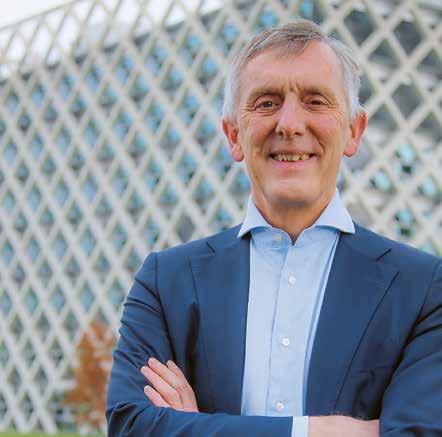
1 minute read
Word from the Rector
ReThinking Waste = ReThinking production & consumption
With the world’s growing population and increasing prosperity, global consumption is skyrocketing. Unsustainable production processes and products based on finite resources and linear consumption processes have led to devastating consequences, ranging from waste and environmental degradation to accelerated climate change and depletion of natural resources. We urgently need approaches to development that limit these negative effects; sustainable and circular approaches that minimize waste, and utilize renewable resources. Addressing these challenges requires out-of-thebox designs, solutions and collaboration. Which is exactly what we aim for with our ReThink Waste Challenge.
Advertisement
Inspiring young talent
As a leading institution in the field of sustainability, agriculture and food, we set out to educate and inspire young people, to become the changemakers for a sustainable and resilient future. We provide them with the knowledge and skills to contribute to key global transitions. This Challenge is one of the ways to achieve this. Twenty-seven teams with close to two hundred students from sixty seven different universities in thirty three countries started on this journey at the end of 2022. After nearly 6 months, 10 teams made it to the finals.
On the way to a circular economy and society
I am very proud of the students that have participated in this edition of the ReThink Waste Challenge. They have developed amazing concepts and innovations for limiting the amount of waste, and speeding up the transition to a circular biobased economy and society.
I am full of admiration for the teams who dedicated so much of their time and energy to make a positive impact on our world. Congratulations to you for your creativity, innovation, hard work and persistence!
Joining hands to create change
Working together is crucial in tackling the global challenges we all encounter, and this Challenge is no exception. My colleagues at Wageningen University & Research, along with our partners worldwide, have collaborated on this project. I am immensely grateful for their support and would like to express my heartfelt thanks.
I hope the content of this magazine will provide inspiration to anyone interested in contributing to a more sustainable future.
Arthur Mol Rector Magnificus/Vice President of the Executive Board Wageningen University & Research









